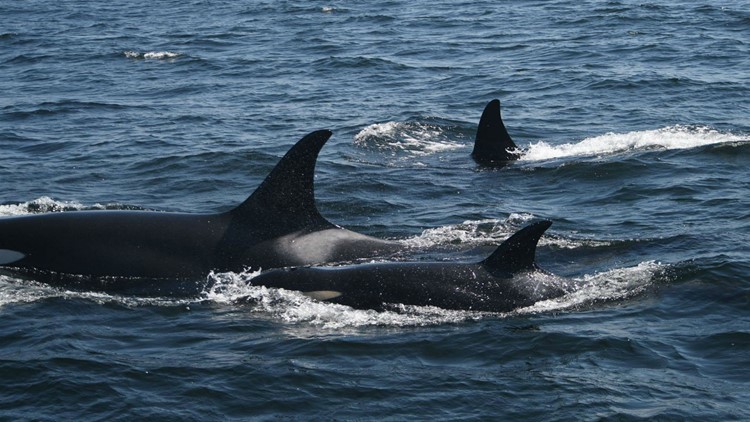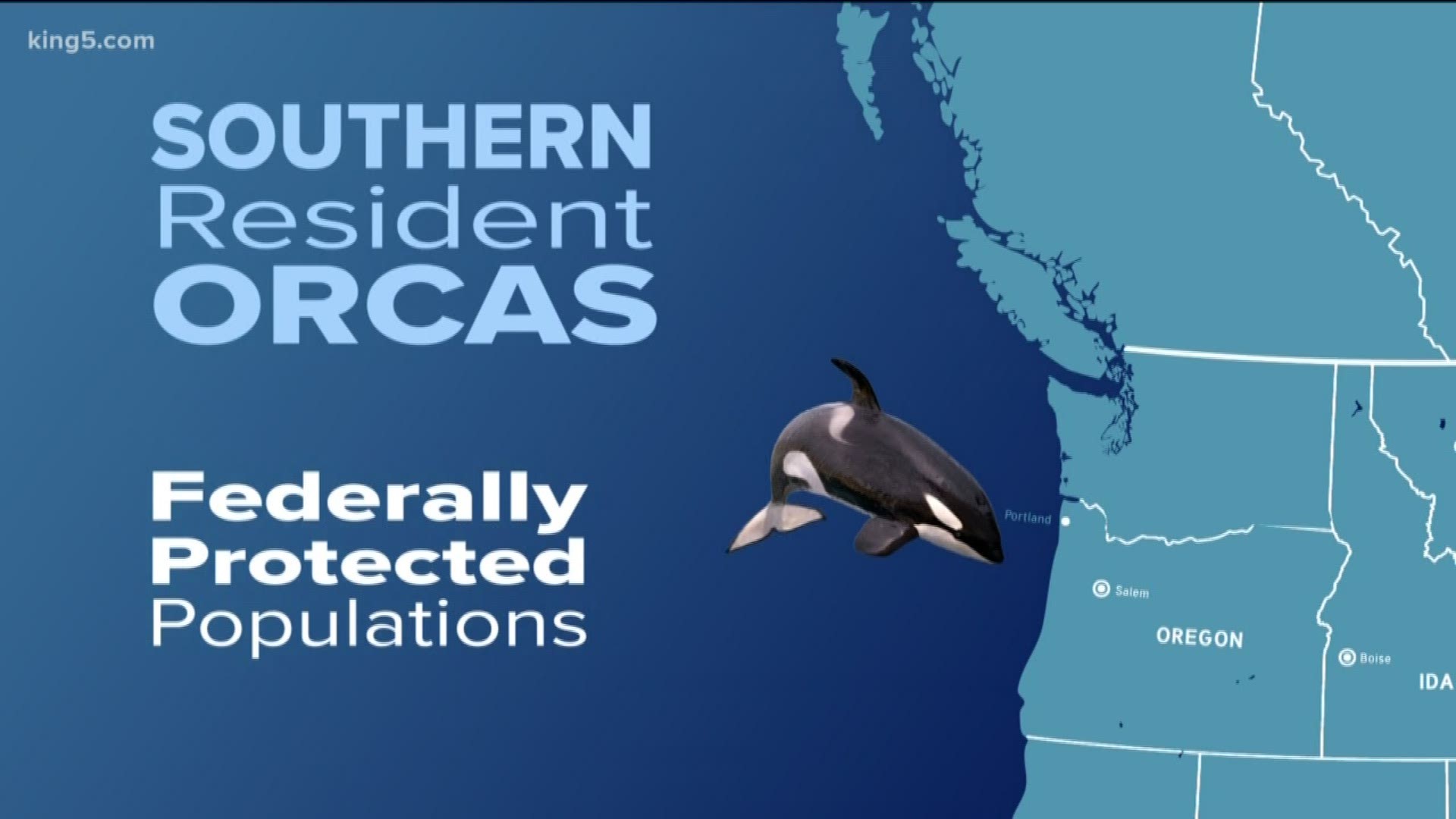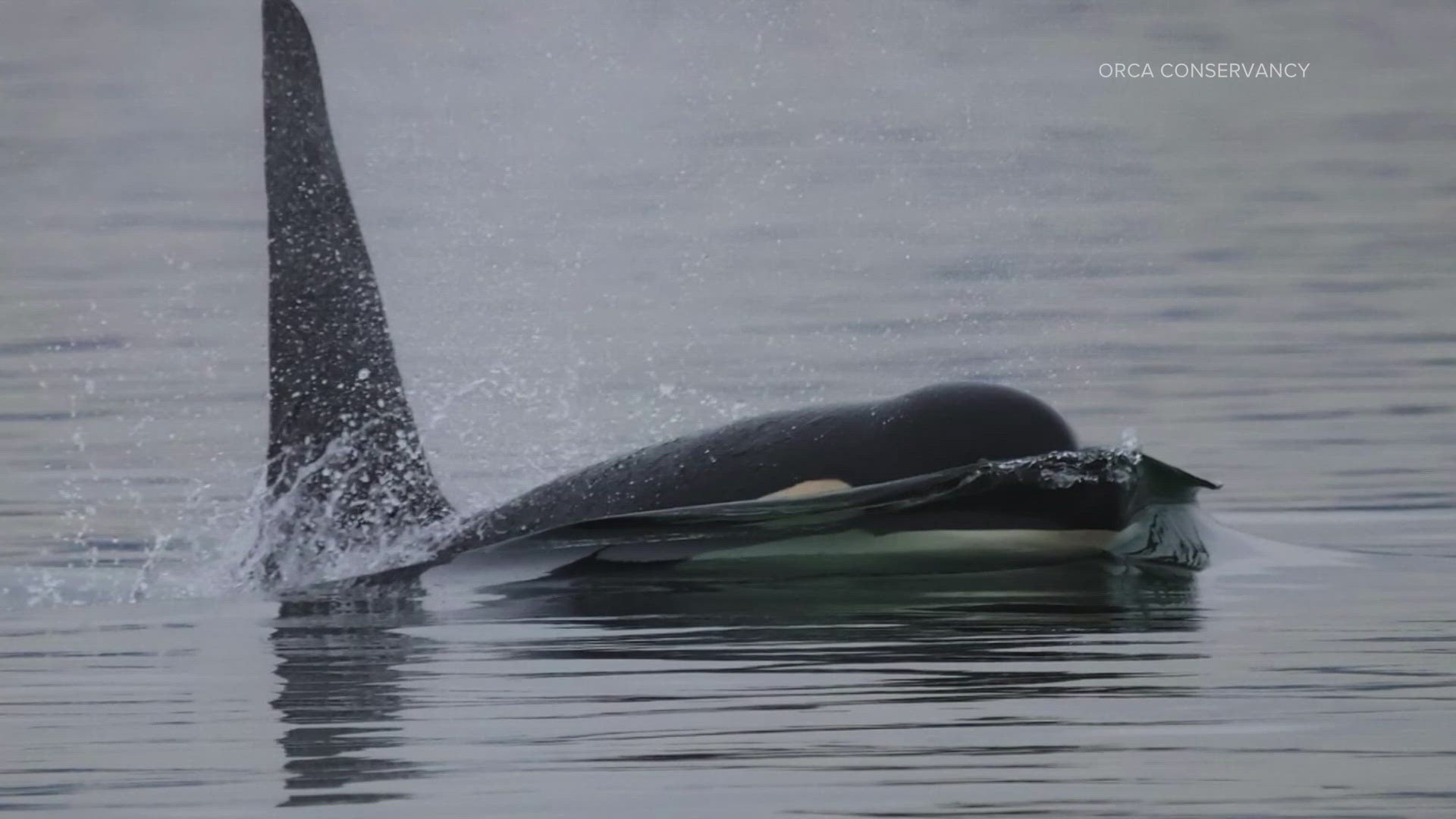Capturing the sick Southern Resident killer whale known as J50 or "Scarlet" is not out of the question as the young orca's condition continues to deteriorate.
If it comes down to it and there are no other alternatives, 3-year-old J50 could be captured in order to evaluate her health and provide medical care, before releasing her.
Chris Yates, assistant regional administrator for the National Oceanic and Atmospheric Administration (NOAA), said if the orca was captured, it would be done in a way that wouldn't impact her family unit, the J pod.
“We are preparing one of our partners to rescue J50 if she ultimately gets separated from her family unit or strands alive and rescuing her is the only alternative that is before us,” Yates said. “If we were to rescue her, all of the focus would be to provide her medical care with the goal of her returning to the wild to contribute to the recovery of the Southern Resident killer whales.”
NOAA's Lynn Barre said J50's health has deteriorated over recent weeks, even after administering antibiotics through several darts.
It's unclear exactly how long J50 has left to live. She has a condition called 'peanut head,' which signals severe weight loss. No one is sure exactly what is ailing her, but the majority of whales seen with the condition do not recover.
Despite public pushback on the idea of a live capture, NOAA is positioning teams to do so if the conditions allow. J50 recently went missing for several days but eventually returned to her family. NOAA officials explained that something more severe would have to occur before they intervene.
“This is an incredibly challenging undertaking, a lot of variables, a lot of unknowns, and we really appreciate the field teams and experts that we’ve been consulting with, helping think through all of the options in advance so we can be prepared,” Barre said.
Barre points to the importance of J50’s contribution reproductively someday, as the Southern Resident killer whales have dwindled to just 75 with only a dozen able to reproduce. They are facing a trifecta of challenges that include lack of prey, pollution, and boat noise. The Southern Residents only eat fish, mostly Chinook salmon, unlike other orcas that eat seals and seal lions or sharks.
“She was the thinnest killer whale I’ve ever seen,” said SeaDoc Veterinarian Joe Gaydos. “This is a very sick whale.”
Gaydos says treatment could include endoscopy, ultrasound, and other medical procedures, but not likely surgery as it is difficult to perform and often is not successful. He says J50 could have something as simple as a plastic bag stuck inside her or a more insidious disease, but certain diagnoses may not necessarily allow for treatment.
The last whale captured and returned to her pod was Springer, an orphaned killer whale who swam around boats and Washington State ferries. According to Barre, her family accepted her back almost immediately and she has subsequently given birth to two calves.
NOAA would put J50 in a net pen while treating her. Though stress on the whales is a consideration, NOAA says it would not tip J50 over the edge.
“There is always risk for trauma when you capture a wild animal,” Gaydos said. “If she dies from the capture because she was stranded or isolated, she was going to die anyway.”
There is no specific timeline for capture or even release once treated. NOAA is continuing to monitor the situation with partners who are watching the J-Pod, as they continue to plan for the possibility of a capture.
Online petitions have surfaced against J50’s capture. One petition by the Vancouver, British Columbia non-profit Lifeforce Foundation has over 171,000 online signatures. Another petition had around 500 signatures Wednesday afternoon.
Public meetings planned
The public is invited to discuss the emergency response for ailing orca J50 at two meetings this weekend.
NOAA called for the meetings, based on the public's interest in J50's health and the saga of an orca who carried her dead calf for 17 days.
The two cases underscore concern for the declining population of endangered Southern Resident killer whales in the Northwest. The numbers have dwindled to 75 whales as of 2018.
NOAA and partner organizations have made attempts to administer antibiotics to J50 and deliver salmon to the ailing Southern Resident killer whale.
Despite human intervention, J50 is now emaciated and often seeing lagging behind her J Pod family. NOAA reports her survival is unlikely, as veterinarians believe they have exhausted remote treatment options.
NOAA says the next steps could involve a rescue operation and hands-on physical exam. Response teams would only intervene if J50 became stranded or separated from her pod, so that no other whales would be impacted.
If scientists can successfully rehab J50, the ultimate goal is to reunite her with the J Pod for her contribution to the population. If it's determined the young whale cannot be saved, NOAA says J50 would be returned to her pod to live out her life with family.
The public is invited to learn more about the emergency response plan and share feedback on the recovery efforts.
The public meetings are scheduled for:
- Saturday, September 15 at 7 p.m. at Friday Harbor High School
- Sunday, September 16 at 1 p.m. at the University of Washington, Haggett Hall Cascade Room, Seattle campus




